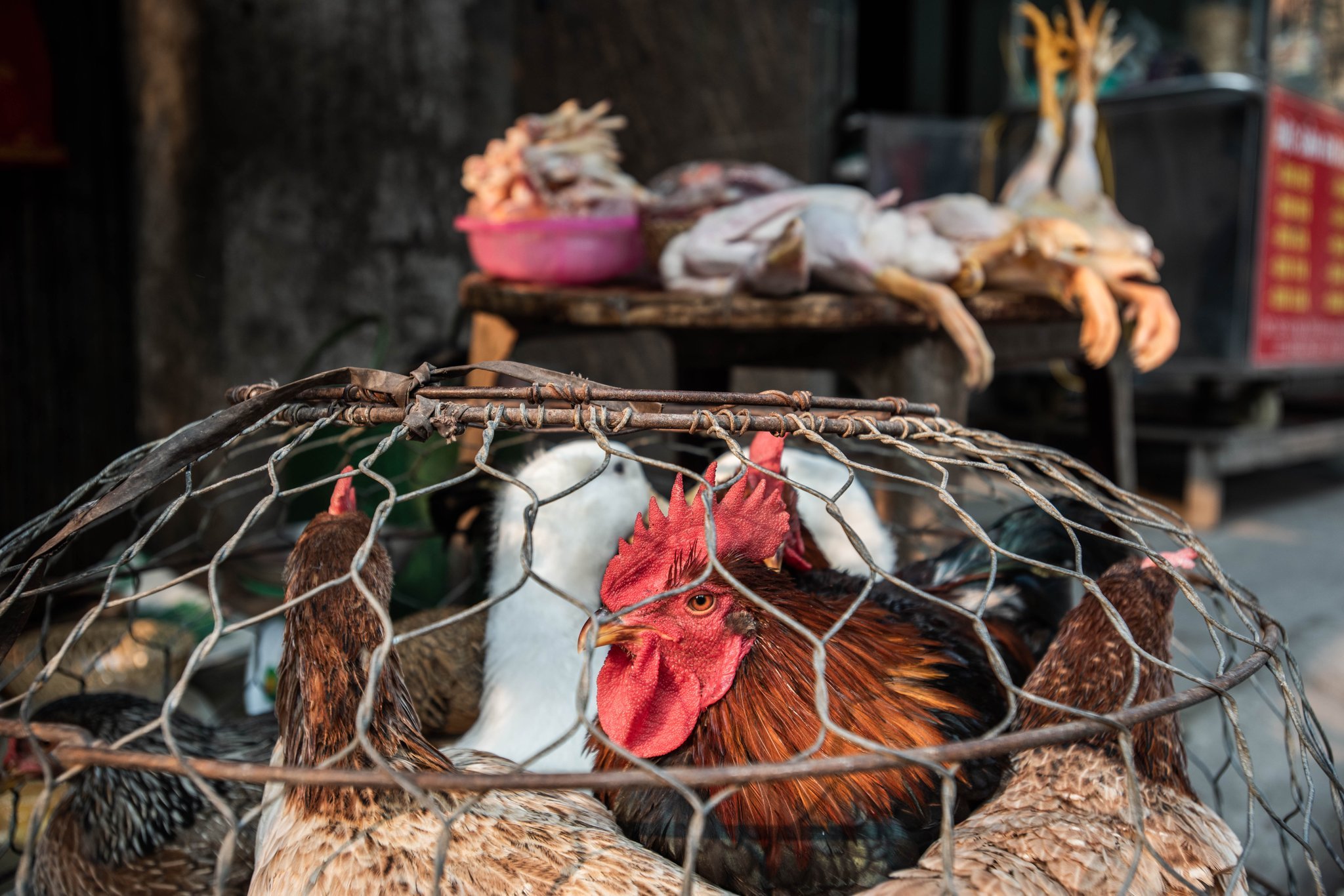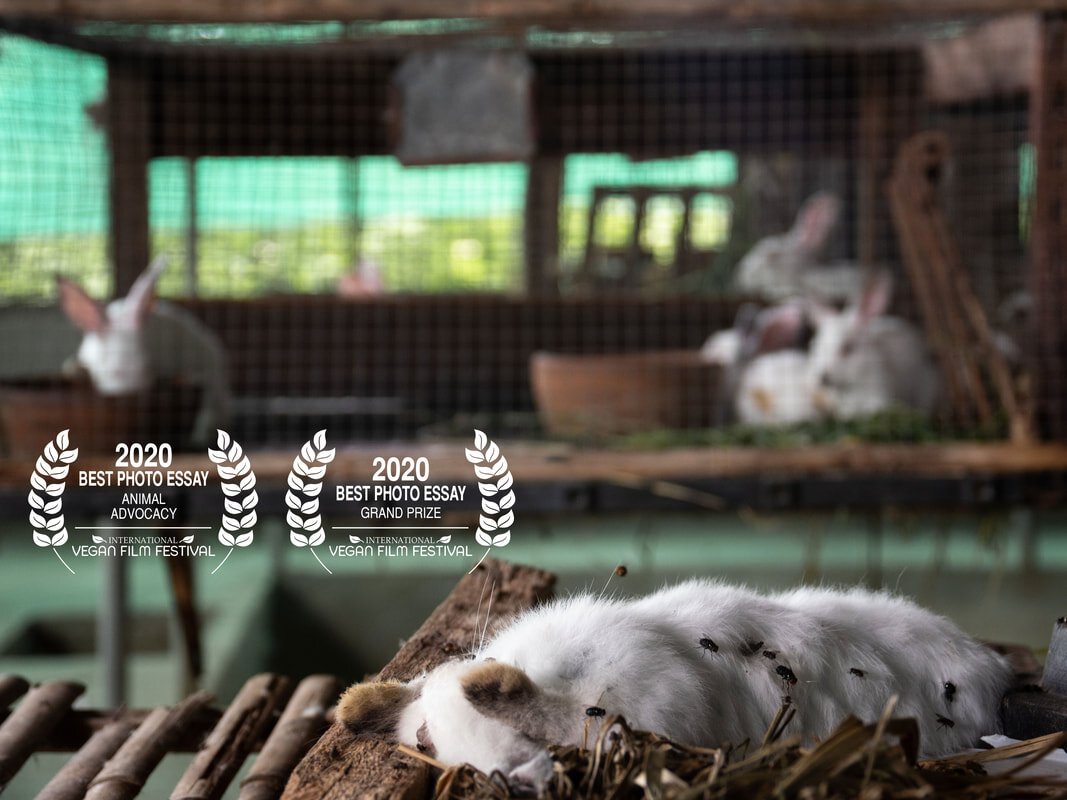
Live Animal Markets
Moving Animals collaborated with campaign group Open Cages to document and investigate live animal markets during start of the Covid-19 pandemic.
In collaboration with Open Cages
+ 15,000 Shares
across social media
2 Mainstream Media
stories published
1 Campaign
collaboration
The Issue
In February 2020, Moving Animals documented live animal markets in Vietnam whilst the country was in semi-lockdown due to Covid-19. It was here that we witnessed a wide variety of live animal species kept in cramped, dirty conditions. Vendors sold a range of animals, including wild reptiles and dogs, some already dead and others slaughtered in front of waiting animals. These animals have little-to-no legal protection, and we witnessed and documented extreme suffering and unregulated conditions.
Live frogs were decapitated with a cleaver or a pair of scissors in full view of other animals, and were skinned while their bodies were still-wriggling. Soft-shelled turtles were crammed into cages, with some flipped upside down and unable to right themselves until they were chosen for slaughter. These animals were far removed from their natural habitat, amidst overwhelming noises - the horns of motorbikes, the shouts from market vendors, and the dull thud of cleavers striking wooden boards and flesh. Fish were kept in tanks or makeshift buckets of water, with many slowly suffocating or floundering on the ground. When slaughtered, fish were stunned with a hit to the head, before being cut into - our footage showed ineffective or lack of stunning resulting in some fish cut into and quartered whilst still conscious. Live crabs were sold de-shelled and by the bagful. They were kept in a round, plastic bowl, and those at the bottom were crushed by the weight of others. Many of the customers made their purchases from motorbikes and the few crabs who managed to escape the bowl were often crushed under the wheels of passing bikes. An array of fresh meat, including chicken, duck, and dog lined the stalls, alongside crowded cages rammed full of live animals who were awaiting their slaughter.
Solutions For Change:
Moving Animals partnered with animal advocacy group Open Cages to launch this investigation. Tge findings were published in major media platforms Mail Online and Daily Express to draw further attention to Open Cages’ campaign to end live animal markets to protect animals and reduce future pandemic risk.
A coalition of 22 leading animal charities in Asia is also advocating for an immediate ban on all live animal markets across the continent, aiming to prevent potential future outbreaks. Other groups have called for a reevaluation of our global food system.
The wider system of animal agriculture across the world is responsible for a host of infectious diseases that have passed to humans by eating meat. Zoonotic viruses almost always leap to humans directly from livestock or from wildlife, and the CDC warns that 3 out of 4 new or emerging infectious diseases in people come from animals. Critics say that industrial farming, in particular, is accelerating the chances of more and more deadly outbreaks.
Photo Essay: Next in Line
Three photographs from this investigation were part of a 5-part photo essay, ‘Next in Line’, which won the International Vegan Film Festival 2020/2021 Photo Essay Contest in the Animal Welfare & Best Overall categories.
Farmed animals endure so many acts of physical and emotional violence throughout their short lives. There is the physical suffering, such as painfully cramped conditions and the horrific slaughter process itself. And there's the emotional violence, like being forced to witness the death of others - something that many of us, as human animals, are rarely exposed to. These images portray this emotional violence as a moment in time, one where the animals watch the death of another individual, likely with the understanding that they are next in line.
Use these visuals
Visit the Animals used for food gallery on the Moving Animal archive. For related footage, please get in touch.










